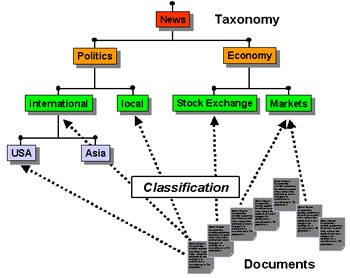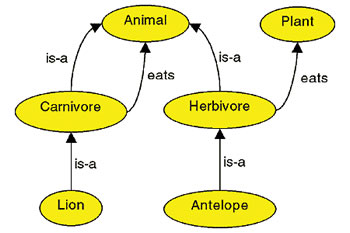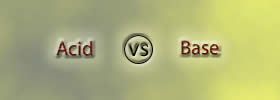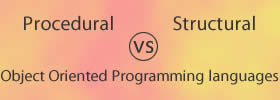Difference between Taxonomy and Ontology
Key Difference: Taxonomy and Ontology are two different ways of categorization. The main difference between Taxonomy and Ontology is that taxonomy is simpler in nature than ontology. Taxonomy takes into consideration one type of relationship, whereas ontology takes into account many different complex relationships between the concepts.

Taxonomy and Ontology are two different ways of describing the relationships between two things. The terms were originally used in science, biological sciences to be precise, and then were brought over into informational sciences. The terms are now often used in computer science.
The terms are commonly applicable in the fields of artificial intelligence, the Semantic Web, systems engineering, software engineering, biomedical informatics, library science, enterprise bookmarking, and information architecture.
The primary purpose of taxonomy and ontology is to help categorize and classify. Taxonomies are a system of classifying objects. Most taxonomies have a hierarchical structure, but it is not a requisite. It can be said that a taxonomy is simple hierarchical arrangement of entities. It utilizes a parent-child relation in its classification.
Ontology, on the other hand, is a more complex form of categorization. It can even be said that it is a complex variation of taxonomy. It includes the taxonomy form of hierarchical structure for categorization, but also incorporates arbitrary complex relations to categorize the concepts. These arbitrary complex relations show various relationships between the concepts other than the simple parent-child relation.
 The main difference between Taxonomy and Ontology is that taxonomy is simpler in nature than ontology. Taxonomy takes into consideration one type of relationship, whereas ontology takes into account many different complex relationships between the concepts.
The main difference between Taxonomy and Ontology is that taxonomy is simpler in nature than ontology. Taxonomy takes into consideration one type of relationship, whereas ontology takes into account many different complex relationships between the concepts.
Consider taxonomy as a tree, where smaller categories are linked with larger categories via branches. This is said to be a parent/child categorization. Whereas, ontology is a slightly more intricate way of categorization. This is mainly because it takes into consideration more than one type of relationship. Think of ontology as a web, where everything is interrelated. Here, one category can be linked to more than one other category.
Comparison between Taxonomy and Ontology:
|
|
Taxonomy |
Ontology |
|
Definition |
|
|
|
Description (Science) |
Taxonomy is the science of naming, describing and classifying organisms and includes all plants, animals and microorganisms of the world. |
Ontology is the philosophical study of the nature of being, becoming, existence, or reality, as well as the basic categories of being and their relations. |
|
Description (Information Science) |
Taxonomy is a principle that is used to classify something. It usually follows a simple hierarchy or parent/child relationship. |
Ontology is a principle that is used to classify something. It usually follows a complex and sophisticated model where everything is interconnected. |
|
Purpose |
Add structure/context to unstructured information to make that information more easily searchable |
To create a more sophisticated information model that might be deployed to do advanced natural language processing or text analytics. |
|
Concepts |
Concepts are simpler |
Concepts are more complex |
|
Format |
Hierarchy of concepts |
Arbitrary complex relations |
|
|
Generally is limited to a specific subject area |
Does not need to be limited to a specific subject area |
|
Relationship |
The only relation between the concepts is parent/child, or ubclass/superClass, or broader/narrower |
Concepts are more complex such as X marriedTo Y; or A worksFor B; or C locatedIn D, etc. |
|
Example |
Like a tree with branches |
Like a web, with everything interconnected |
Image Courtesy: pixshark.com, scientific-computing.com









Add new comment